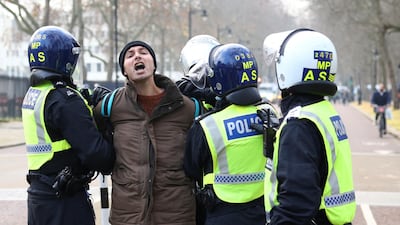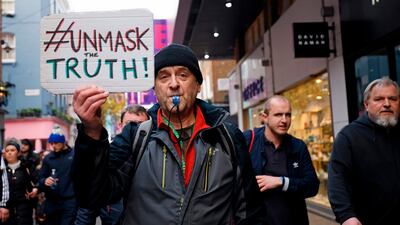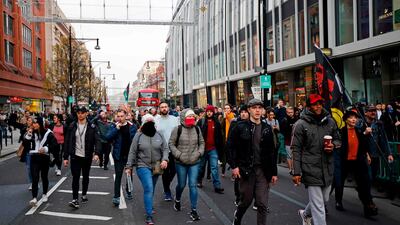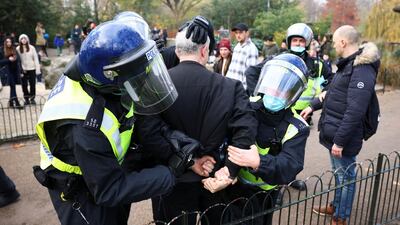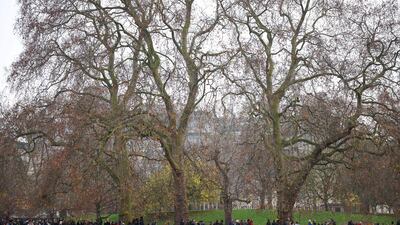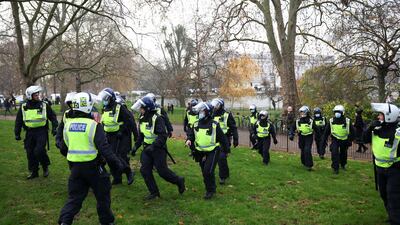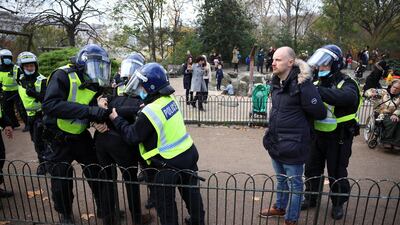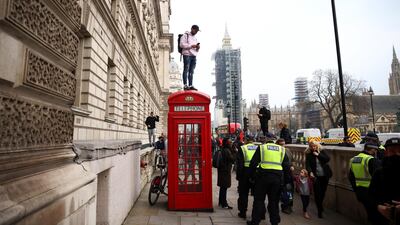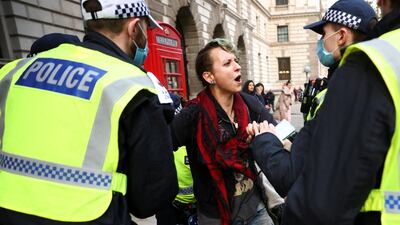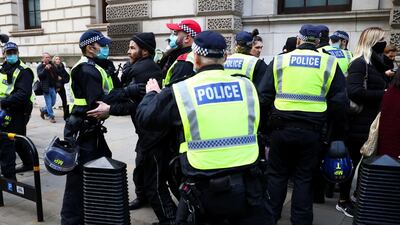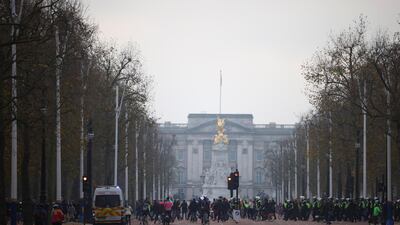More than 150 people were arrested in central London on Saturday while protesting government-enforced coronavirus lockdown measures.
Hundreds of demonstrators marched through the UK capital near Oxford Street chanting “freedom”, with some carrying placards stating “stop controlling us”, “ditch the face masks” and “no more lockdowns”.
The Metropolitan Police said the arrests were for several suspected offences, including breaching coronavirus restrictions, drug possession and assaulting an officer.
The force had earlier urged people to go home.
“On Friday, we made it very clear how we would police this event, warning those looking to attend that they risked facing enforcement action if they attended a gathering in London," said Stuart Bell, the senior police officer tasked with handling the protest.
"Today’s enforcement action is a direct result of those individuals deliberately breaking the law and at times, targeting our officers with aggression and causing disruption to the road network.
“Our policing plan will continue well into the evening and I would urge anyone who hasn’t already dispersed to go home. By doing so, you can avoid ending up facing enforcement action and help protect yourself and others during this health crisis," he added.
There was violence between demonstrators and the police. Some people fired flares and traffic was temporarily blocked on Regent Street as police made their arrests. Others were led away in handcuffs in Hyde Park.
The Met said three people were arrested at King’s Cross station in London before the protests on suspicion of breaching coronavirus restrictions.
There have been several anti-lockdown protests in central London since the onset of the pandemic.
The UK is in a nationwide lockdown until December 2 to try to flatten the curve of its second wave of infections. Protests and other mass gatherings are currently banned.
From Wednesday, the country will move into a tiered system, with areas with high rates of infection to follow stricter social-distancing restrictions.
Covid-19 has infected more than 1.6 million people in the UK and claimed the lives of at least 58,000.
Earlier on Saturday, Prime Minister Boris Johnson appointed Nadhim Zahawi to oversee the distribution of the Covid vaccine in Britain.
Officials also revealed at the weekend that up to 2.7 million people at risk of Covid-19 in England will be offered a free supply of vitamin D by the government.
Studies have shown that the vitamin helps strengthen the immune response against the virus. From January, care homes in England will automatically receive free supplies of the supplement for residents.
